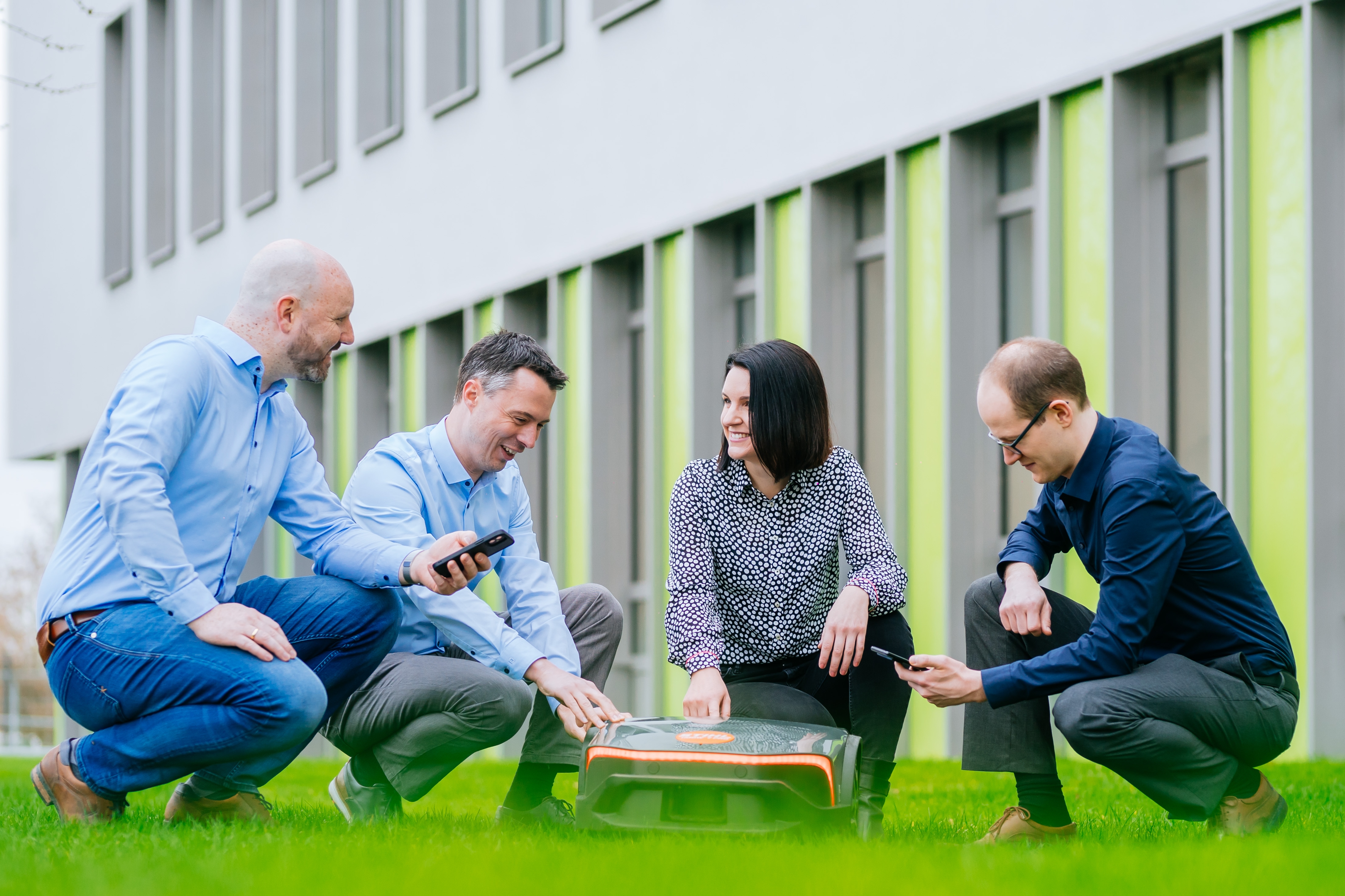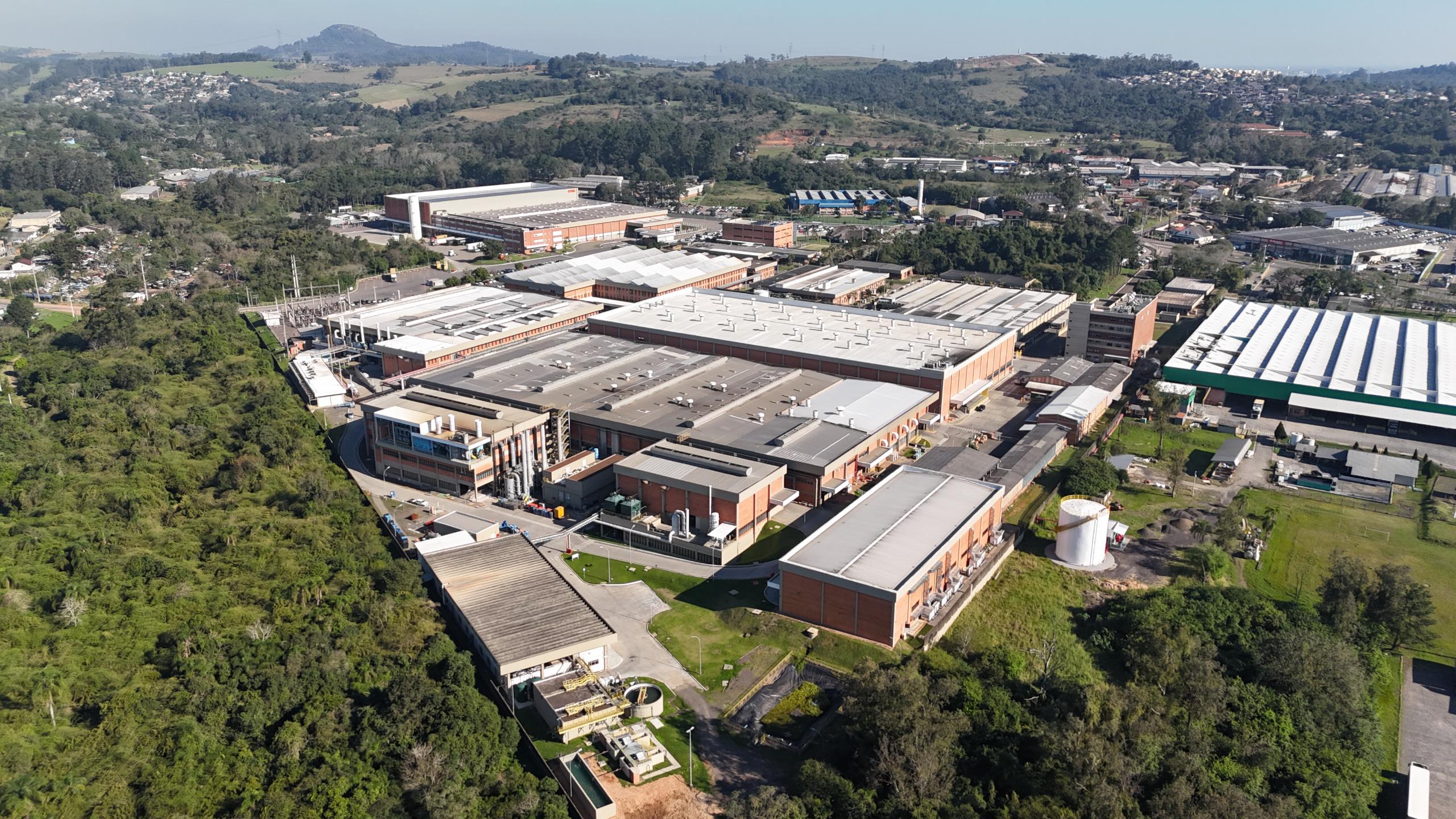Essential – no matter how small or large
The tranquil village of Wiech am Randen, in the region of Tengen, Germany is separated from the metropolis of São Leopoldo in southern Brazil by more than 230,000 inhabitants and almost 10,500 kilometers. And yet the two places share key similarities every single day: Both are part of the STIHL Group and are indispensable as part of the production network.

Tengen is a small and tranquil town that borders Switzerland to the east, south and west. It has sweeping views over gentle hills, meadows and forests. On very clear days, you can even see Lake Constance on the horizon.
Roland Restle is firmly rooted in the region. He has now also found a professional home here in STIHL Plant 3, which has been located in Wiechs am Randen, a district of Tengen, since 1960. His father and grandfather worked with saws, so he first became a carpenter. He has been at STIHL since 2011, swapping the saws and woodworking trade for a position as a plant operator. His favorite station is the laser cutter for the brush knives. “The job is varied and challenging.” But what he likes best is the closeness at the smallest location within the STIHL Group. A familial bond is really a matter of course for the 67 plant employees. “Nobody is just a number here; everything is very personal, direct and mostly unbureaucratic,” says the 36-year-old, smiling.


Jaiane dos Santos Burkner can still remember her first day at STIHL: “Everyone greeted me, even hugged me. At first I thought someone had died.” But then she realised this was a team morning ritual by which they each wished each other a good start to the day. Jaiane dos Santos Burkner’s home is more than 10,000 kilometers away from Roland Restle’s. But her journey to work is similarly short – because she now lives in the immediate vicinity of the STIHL plant in São Leopoldo, a large city in the Porto Alegre metropolitan area. She left her hometown especially to take up her job in plastics production. She has never regretted it: “My initially fixed-term position has now turned into ten years.” She has already infected her two sons with enthusiasm for STIHL – both of them absolutely want to go on to work for the global company with Swabian roots.
How it all began
60 years ago, an emotional connection led to the laying of the foundation stone for STIHL in Wiechs am Randen. The local priest had a meeting with Andreas Stihl, and he talked of his concerns about rising unemployment and the prospect of a rural exodus. As Andreas Stihl felt a deep connection to his father’s place of birth, he decided to help. The first production facility outside the Waiblingen headquarters was built in the center of the village, with six employees. Brazil followed 13 years later, but was also a first: STIHL’s first production abroad. Initially, only around 500 machines were produced each year in the city. Today its expertise in magnesium die-casting, plastics, crankshaft and bar production makes it an indispensable part of the STIHL Group, especially because of its cylinder production. Cylinders “made in Brazil” cover more than 90% of Group-wide demand.

This is something that Gilmar Rodrigues Palagem is proud of. He persistently submitted a job application month after month in order to finally become part of this success story himself. He joined in 2004 and has been here ever since. Today he works in the cylinder foundry, has trained as a precision mechanic and is currently studying part-time to become a production manager: “My goal is to gain a lot of knowledge in order to be equipped for future opportunities in the company. I want to grow and develop here.” Commitment pays off, as Felizitas Thiel also knows. The 46-year-old has already done “almost all jobs” in the 15 years she has spent working in Wiechs am Randen, she reports. Today the trained printing template manufacturer works in quality assurance and is Chair of the Works Council. In her experience, in Wiechs they do things a little differently from the rest of the world – and she likes it. She thinks highly of her site: “We have undergone a major development, repeatedly demonstrating what we can do and how important we are for the entire group.” The manufacture of aluminum handles with and without heating as well as the production of brush knives are small, fine and important differentiators for this site.


Proud of the “Academy”
Sometimes Holger Vollmer sees himself and his team as an “Academy” within STIHL Group. “We assemble and produce at one location. This is a big challenge for all of us. We’re a mini-factory,” says the plant manager, who cannot hide how much he enjoys this position within the company. Vollmer is a typical STIHL home-grown talent, and has undertaken a variety of activities at the head office and abroad. Then in 2013 he was offered the position of plant manager in the small enclave on the border with Switzerland. He is not only the boss there, but sometimes also the works protection officer or seller of brand shop items. Both then and now, he is certain of one thing: “A village location has no relation to competence.” With more than 90% machine efficiency and less than 3.5% downtime, Wiechs is far better than the required key figures.


While Vollmer looks to the future with many ideas, Luis Carlos de Souza is already looking back a little. The 57-year-old is preparing for retirement with mixed feelings – it feels “like yesterday” that he started at STIHL. In fact the warehouser now has many years of work under his belt, 35 of which he spent at STIHL. At that time Brazil must have felt a little like Wiechs does: “We were a small team, and everyone knew everyone. There were only a few buildings, it felt like a family.” Since then the family has grown a lot – and so has his own, as de Souza has three children. Two of them have already followed in his footsteps. His great hope is that even the youngest daughter will become a real STIHL-er. “No matter how big or small, STIHL has always remained true to itself and its values. It’s a business by a family, for many other families.”


